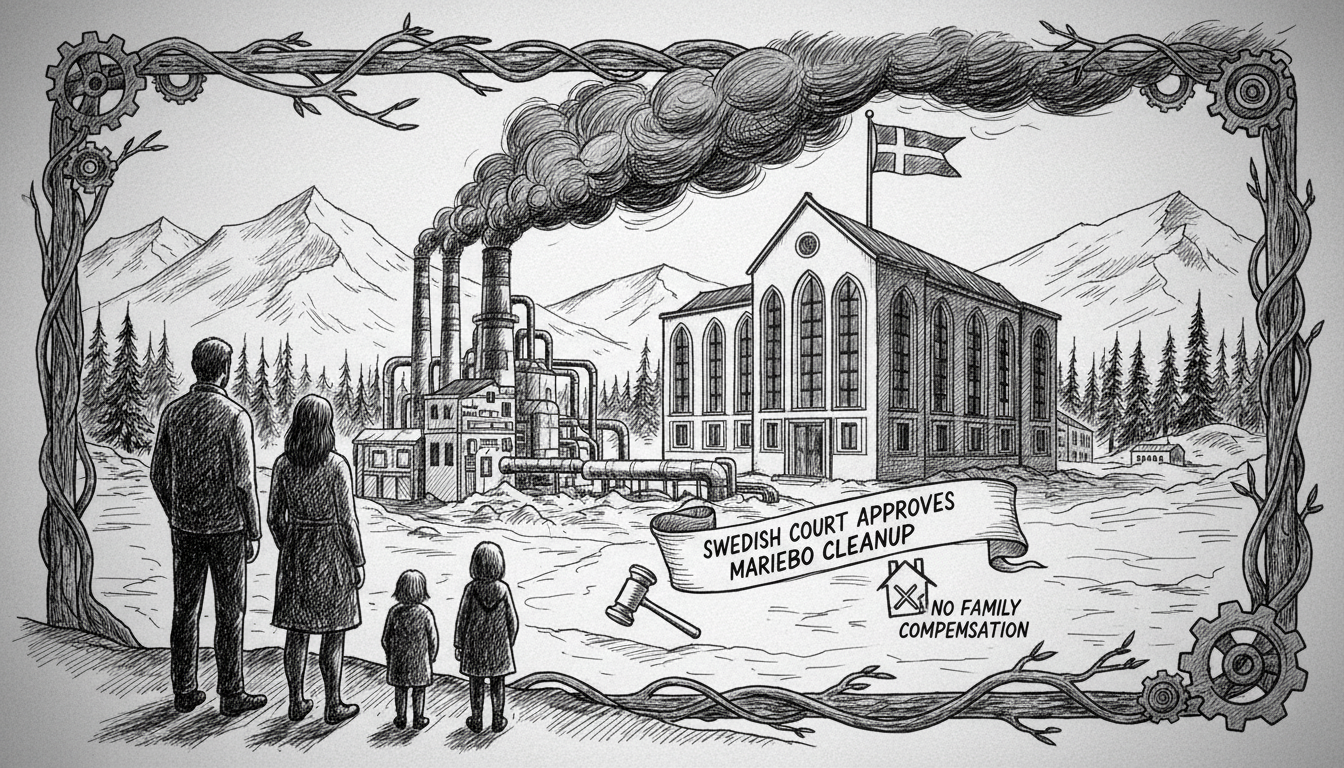A Swedish court has granted immediate approval for environmental cleanup work at contaminated properties in Mariebo, Jönköping. The Geological Survey of Sweden can now begin remediation efforts that will continue through 2030. The court rejected compensation claims from several families living near the toxic sites.
Three families sought to have their properties purchased by the geological agency. They argued the cleanup work would create excessive noise and disruption. The court determined the families would not experience enough inconvenience to warrant property buyouts. Officials did order the agency to cover legal costs for three families totaling 344,658 kronor.
Jönköping municipality previously acquired six properties across seven lots due to contamination concerns. Two families remain living adjacent to the cleanup zone. Authorities determined these households would not be significantly affected by remediation activities.
The Mariebo contamination saga began in 2015 when county officials designated the area as high-risk. The case highlights Sweden's strict environmental protection laws and property rights balance. Swedish courts frequently handle disputes between residents and government agencies over environmental hazards.
This ruling demonstrates how Swedish courts weigh individual property rights against public health priorities. The immediate cleanup authorization shows authorities consider the contamination serious enough to bypass typical waiting periods. The extended deadline through 2030 suggests complex remediation requiring years of work.
International readers should understand Sweden's environmental protection system ranks among the world's most comprehensive. The Geological Survey of Sweden handles numerous contaminated site cleanups annually. Swedish law typically favors remediation over relocation when possible.
The case reveals practical limitations in Sweden's otherwise strong environmental protections. While the government acts decisively on contamination, affected residents don't automatically receive compensation or relocation options. This creates difficult situations for families living near identified hazards.
What happens next? The geological agency will begin soil remediation and monitoring. Remaining residents must adapt to years of construction activity nearby. The case could influence future Swedish environmental compensation claims.
Sweden's approach contrasts with some other Nordic countries where property buyouts occur more readily near contaminated sites. The ruling maintains Sweden's pattern of prioritizing environmental cleanup while limiting financial liabilities.

